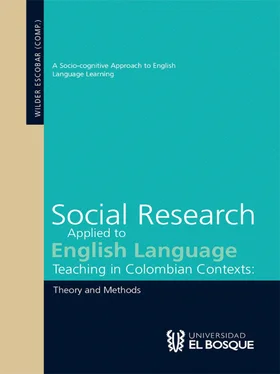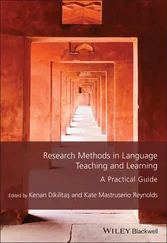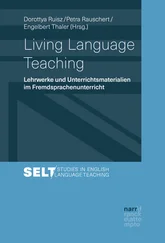Furthermore, language has been suggested to mediate cognitive processes at both the interpersonal and intrapersonal levels (Well, 1995). The interpersonal level refers to the verbal interaction that takes place among two or more people, and which shapes and constructs knowledge in the learning context. At the intrapersonal level, speaking to oneself helps to simplify information, thus facilitating the process of understanding and knowledge construction. Nevertheless, both interpersonal and intra-personal communication are considered social activities. When an individual speaks to himself or herself, the opinions of others bear greatly on the mind. Subsequently, when speaking with others, one’s opinions are being built or modified by the interactions in which they take part. Thus, the role of language in the cognitive process is understood as a social aspect given that there is, at least, a two-way conduit of influence operating in the learning of individuals. Consideration of these two-way interactions is essential when attempting to establish the relationships between the language-learning process and the social environments in which it occurs.
Furthermore, language creates the conditions for learning and for social relations to take place. Norton (1997) suggests that language serves to express perceptions of the world; that it is through language that values, desires, and knowledge are conveyed. Language, therefore, is an expression of identity; it is the reflection of people’s ideologies, as well as a manner in which people convey meaning and pass on knowledge. Furthermore, it is suggested that language is not only a means through which individuals express identity, but it is also a source through which identity is constructed. Language is an element capable of positioning individuals in a given social rank. Thus, language is both a source for identity constitution and the means by which one expresses that identity (Cameron, 1995, as cited in Pennycook, 2001). For this reason, chapter five represents an attempt to create safe learning environments that would nurture the self-confidence of young learners to enhance and express their understandings about their social world through narrative writing.
In light of the above, Hymes (1974) refers to two main characteristics that any approach to language should consider. The first consideration suggests that “one needs to investigate directly the use of language in contexts of situation, so as to discern patterns proper to speech activity and abstract them into some other frame of reference” (p.39). Language is not standard and it is not static; it varies depending on the context and its appropriateness is determined by the end results, such as achieving communication in a specific context and for a specific purpose. The second characteristic suggests that “one must take as context a community or network of persons, investigating its communicative activities as a whole, so that any use of channel and code takes its place as part of the resources upon which the members draw” (p. 39). In the realm of education and, more especially English teaching, there are particular conventions such as words, styles, genre, and social events which are to be analyzed in light of the surrounding settings, so as to give them a proper reading.
Understanding the relationships of knowledge, language, teaching, and learning could initiate the basis for recognizing EFL teaching as an opportunity for knowledge construction. This, in turn, could motivate reconsiderations about teaching policies and practices at the classroom level, as well as at the policy-making level. In other words, this work represents a proponent of a continuum of a ‘renewal of understandings.’ At a personal level, this collection of social research aided a reconsideration of methodology as to inspire teaching practices which better relate them to our own realities. At the collective level, the social research processes and experiences come together in a unified text in order to share new understandings. These understandings become, in turn, available to others for the advancement of the socio-cultural English learning conditions in the heterogeneous EFL classrooms in the Colombian context.
Mckay and Wong (1996) suggest that learners are extremely complex social beings with ever-changing needs and desires. They inhabit complex, multidimensional social environments in which uneven power relations are exerted through various forms of discourse. School life entails far more than the apparent academic responsibilities. It also entails negotiating channels of power between the different entities of their social setting, as well as meeting the demands of parents, teachers and administrators, all while struggling for success in learning. Therefore, learning is a particularly intricate socio-cognitive endeavor affected by multiple factors which need to be taken into account when trying to create the conditions for it to prosper. Frequently, this meeting of demands is done without a personal or individual reflection, nor the due individual or collective appropriation process.
Apart from the notion of identity and language, but not extraneous to them, are the countless other concepts that are at the core of learning and teaching such as investment, agency, and discourse. Investment, as described by Norton (1997), “is the socially and historically constructed relationship of learners to the target [object of study] and the sometimes ambivalent desire to learn it” (p. 19). Knowing which relationships between the learner and the English language are being motivated and promoted will help us to understand socio-cultural concerns. This idea used to be referred to as ‘motivation;’ however, much questioning about the term led to a relabeling of it as ‘investment.’ This individual-knowledge relationship can be influenced by how students perceive the world and how they perceive themselves in relation to it. The way in which an individual sees the target language can trigger an acceptance or resistance towards that language and culture or worse, a resistance to their own language and culture. Unconditionally adopting information from others without the proper analytical process leads to the replication of facts and not one’s own appropriation and construction of knowledge.
Agency refers to the effort of positioning oneself in a favorable place in society. As such, “in any discourse, knowledge, social relations, and social identities are simultaneously being constituted” (Fairclough, 1992, as cited in McKay & Wong, 1996, p. 591). Subject positioning in society is achieved through discourse and this sheds light on the learning process in the sense that the learners’ performance is contingent to the position they occupy within their particular social group. What is our position in relation ship to the language we are learning? How do we perceive ourselves, our own language, our own being in relationship to the ones we want to understand? Are we positioning ourselves in a favorable place when teaching and learning English? Whose interests do we perpetuate? What messages do we convey? What values do the stakeholders of education promote? In other words, the perception that a student may have regarding his or her upbringing can and will be influenced by the way they present someone else’s.
Evidently, learning English not only entails the learning of the linguistic code, but comprehending a different approach to life in relation to one’s own. An individual may take it as given —not questioning it whatsoever— or he or she may carry out an appropriation process which involves understanding the aspects of that approach. In this manner, the individual may be able to identify which aspects may be accepted and which must be rejected. By identifying interests and affiliations in the teaching and learning of English in the Colombian context, we can discern the existence or absence of collective goals as individual groups or as a nation. Beyond trying to reach accuracy and fluency as Tudor (2001) suggests, teaching and learning should seek a purposeful appropriation process of knowledge in which teachers and institutions consider social issues to favor the collective development of the individual or nation. This may mean favoring the learning and understanding of the collective values, objectives, and approaches to life over the content of the language itself.
Читать дальше












